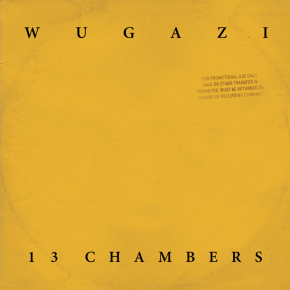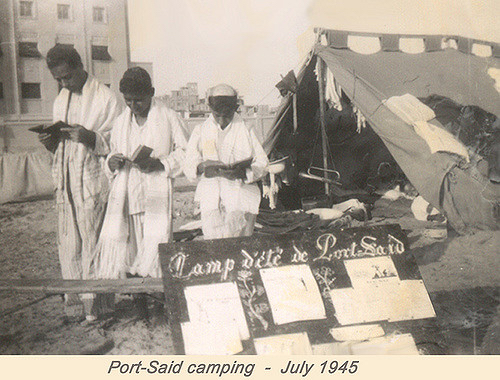Israel’s parliament recently passed a highly problematic law attaching civil penalties to individuals or groups that would promote or encourage boycotts against Israel, including against products made in settlements, Israeli civilian-populated areas established following Israel’s 1967 war, and subsequent military occupation of Arab territories. Many organizations and individuals in Israel oppose the Occupation, noting that the international community regards colonial settlements as violations of international law. Some of these organizations support boycotts as a tool of opposition.
The infringement of freedom of expression and association promoted by the anti-boycott law is clear. In the week since its passage, it has mobilized a variety of opponents among Israeli and Diaspora Jews, who are increasingly anxious about the health of Israeli democracy. Of course the law will not slow down opposition to the Occupation, as the Coalition of Women for Peace point out. Nonetheless, it puts Israeli progressives on notice, by problematizing their right to protest.
I would like to offer a slightly different perspective. When anti-Occupation activists oppose the boycott law, I would argue for an approach that emphasizes freedom of conscience, religion and belief. For a religious humanist (as I consider myself to be,) for whom ethical consumerism is part and parcel of his or her creed, the following may be pertinent:
- Not buying Israeli settlement products because the settlement enterprise is immoral, illegal and counter-democratic, and certainly at odds with my ethical/religious/moral convictions.
- Not doing business with or buying products from places that do not treat its workers fairly.
- Not doing business with or buying products from places that are cruel to animals.
- Not doing business with or buying products from places that engage in unfair, non-socially just pricing.
- Not doing business with or buying products from places that pollute the environment.
- Not frequenting a business that supports or promotes sexism, racism, or xenophobia.
Ethical Consumerism may involve nothing more than choosing one product over another. It may also involve supporting fair trade products, signing a petition, protesting an institution, or participating in collective consumer action, such as a boycott. Some boycotts maybe detestable, such as boycotts motivated by racism. However, it is important to remember that many boycotts, such as the Montgomery Bus Boycott, the United Farm Workers and the boycott in support of freedom for Soviet Jews were critical elements in legitimate struggles for freedom and social justice. So too is the struggle against Israel’s forty-four year long occupation of Palestinian territories. Ethical consumer-inspired protest against the Occupation, and its injustices (the abuse of Palestinian human rights, for example) is equally valid.
Ethical consumerism is about more than just political action. I believe that “the personal is [indeed] political,” and so too is most public action. Ethical consumerism is similarly part of both political and religious traditions. The Unitarian Universalists promote an Ethical Eating program that says:
Environmental justice includes the equitable distribution of both environmental burdens and benefits for populations of residents and workers. Marginalized people have often been able to find housing or work only in areas exposed to environmental pollutants, with consequent negative health and quality of life effects.
Writing in Religion Dispatches, Michelle Gonzalez Maldonado points out that “what we buy and where we buy it is a political act. It is also, I argue, a religious act.” In this vein, ethical consumerism, in the form of consumer actions, such as boycott, is a right of conscience. Some Orthodox Jews advocate for only buying Kosher food, and in fact some set conditions that go beyond the content of the food, and would deny kosher certification to establishments whose owners may not be fully observant Jews or attach a variety of other personal and identity conditions. In the same vein, some Jews (both Orthodox and Otherly religious Jews) promote the concept of eco-kashrut. According to the New York Times,
Kosher meat has long enjoyed a reputation – among Jews and non-Jews alike – for high quality and an expectation that it is produced in an ethical manner. But that status was badly shaken last year by allegations that the country’s largest kosher slaughterhouse, in Iowa, abused workers, animals and the environment.
Horrified, a group of Conservative rabbis designed an additional food certification program known as Magen Tzedek, or shield of righteousness, that sets standards for protecting workers and the environment. The Conservative leaders expect to announce by Rosh Ha Shanah (Jewish New Year, this coming September) a first round of companies adding a voluntary Magen Tzedek seal to their products.
The idea of eco-kosher (including Jewish fair trade) is compelling in its transcendence of traditional and legalistic understandings of Kashrut – the Jewish laws and criteria for determining the fitness for consumption of food products – which tell us that pork products, shell fish, mixing meat and dairy, for example are not fit for Jewish religious consumption. Eco-Kosher challenges Jews to ask if a food product is not just technically Kosher, but to what extent does consuming it cause social or environmental harm, and to what extent can ethical consumerism prevent such harm. This, by the way, is precisely the question many ask when confronted with products that come from Israeli settlements. Rabbi Arthur Waskow of the Shalom Center asks:
But what if we both draw on the ancient meaning of “kosher” and go beyond it? What if we move the word and the idea to a new place in the spiral of Jewish thought, and test out a new word — “eco-kosher”? What if by “eco-kosher” we mean a broader sense of “good practice” in everyday life that draws on the deep well-springs of Jewish wisdom and tradition about the relationships between human beings and the earth? Then perhaps the answer to these questions is that these ways of behaving may not be eco-kosher.
This teaches us a number of things. For example, much of what we do in life is prescribed by rituals, and reflects, to a large degree, our beliefs. Similarly we perform, in our daily life, a number of roles. Members of the Israeli Knesset who passed the treif (un-Kosher) “boycott law” perform, for instance, the role of reminding us that the Israeli government has not done enough to protect such basic civil rights as freedom of expression and religious belief.
Similarly, as religious humanists, particularly those who have come from the Jewish tradition, it is our role to engage, as Rabbi Waskow writes, in a “communal discussions and decisions about vegetarianism, macrobiotic diets, or boycotts of food grown by oppressed workers, [and then about the relevance of] choosing a diet that is distinctive according to a uniquely Jewish pattern.”
Although such questions are informed by a very distinct and egalitarian social outlook, in which human rights, sexual and gender justice, environmental and ecological justice are paramount, there are often answers rooted in particular traditions that can help us to deal with universal problems. In this vein, the Occupation is indeed a problem with both universal and particular characteristics, in which both Jewish and general moral principles should be considered and, if possible, integrated.
Ethical consumerism asks if what we eat, buy, trade, or earn contributes to or detracts from the most basic principles of ecological protection, social justice and human rights. Based on such a perspective, it becomes clear that anti-colonial strategies, such as boycotts, are valid according to a religiously Jewish point of view. They are both particular and universal.
This is what makes an anti-Occupation variation of ethical kashrut relevant. For this reason it is critical to build on the ongoing work of the eco-kosher movement and other Jewish initiatives in ethical consumerism, such as the Israeli Tav Chevrati/Social Kashrut program, which actually offers a certificate of social justice to restaurants that protect worker rights and are accessible to people with disabilities.
I would propose adding the term Occu-Kashrut to this mix. According to this theological formula, we are obligated to ask if the products we buy or the institutions that we support are free from the treif blemish of the Occupation. Recently, Israeli parliamentarian Zahava Galon introduced legislation to force the labeling of settlement products. Likewise the government of the United Kingdom requires similar labeling, as does the European Union.
It is in this respect that one may argue that the decision to engage in a boycott of settlement products is a decision informed by deeply held convictions. Look at how widespread such initiatives are. They obviously mean something, to a good many people. Thus, to take legal action against it is tantamount to violating one’s freedom of conscience, if not their religious beliefs. Under such circumstances, Israeli civil rights deserve superior legal protections.
Photograph of Jewish protestors courtesy of scottmontreal. Published under a Creative Commons license, in collaboration with Babylon Times.





